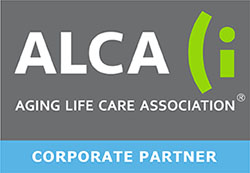Because of the highly personal and intimate nature of the home care industry, families prefer to use locally-owned care providers run by accessible, mission driven Managing Owners. That’s in large part why nationally branded franchise networks have been so successful, and why the home care industry is so fragmented. Franchises are locally-owned, many with family business cultures keenly focused on purpose, passion, and profit. And since the franchise players were the industry pioneers, many today enjoy a trusted brand status that is so important in delivering peace of mind to families. So it should come as no surprise that when high achieving owners seek to sell their businesses and retire, they place as much emphasis on the right next owner as they do the right exit payday. As such, when we initiate a sale on our client’s behalf, we are as much executive recruiters as we are Mergers & Acquisitions intermediaries.
Finding The Next Owner
Who are these executives that are both qualified and motivated to purchase and run a home care company? The primary source is high net worth executives on a mission to better control their career destinies, while doing something more meaningful. Said another way, they are blessed with abundance and seek to pay it forward with a purpose driven career that truly impacts lives for the better. The secondary source is current and former business owners, many of whom are in stagnant or declining industries. They seek to attach their caboose to a faster moving train. Collectively, these prospective purchasers have highly relevant experience and skills but little to no industry experience. That’s another reason franchising has been so successful in the high growth home care industry. In addition to brand power, franchisees benefit from network power in the form of ongoing training, coaching, and the sharing of best practices.
The primary source of Managing Owner successors is executives in transition. Most have never purchased and run their own companies before, so the deal break rates are relatively high. About one in four non-binding Letters of Intent (LOI) do not become binding purchase contracts. That’s because through the due diligence process, some prospective owners aren’t comfortable or confident with their cultural fit, future success prospects, or calculated risk. Sometimes the Sellers, in getting to know their potential successors, grow uncomfortable or less confident with their fit. That’s why it’s mission critical to have multiple prospective purchasers to choose from. Often, the first position prospect becomes a runaway bride and the second position prospect takes their place. The key is to avoid putting all the eggs in one buyer basket. That’s in large part why we have a near 100% acquisition rate of home care providers we bring to market.
Perseverance Pays Off
Outliers exist. Our most recent transaction was on behalf of two high achieving owners within the Visiting Angels network in Boston, MA. Two high potential Managing Owners and one nearby franchisee went deep into the LOI process only to exit the contemplated transaction. In 15 years of doing home care transactions, that is a first for us. But all is well that ends well. The fourth time was a charm. And with each endeavor, the value of the business grew as its earnings grew. It was more than a two year journey when the average is about seven months, but we and our clients persevered.


